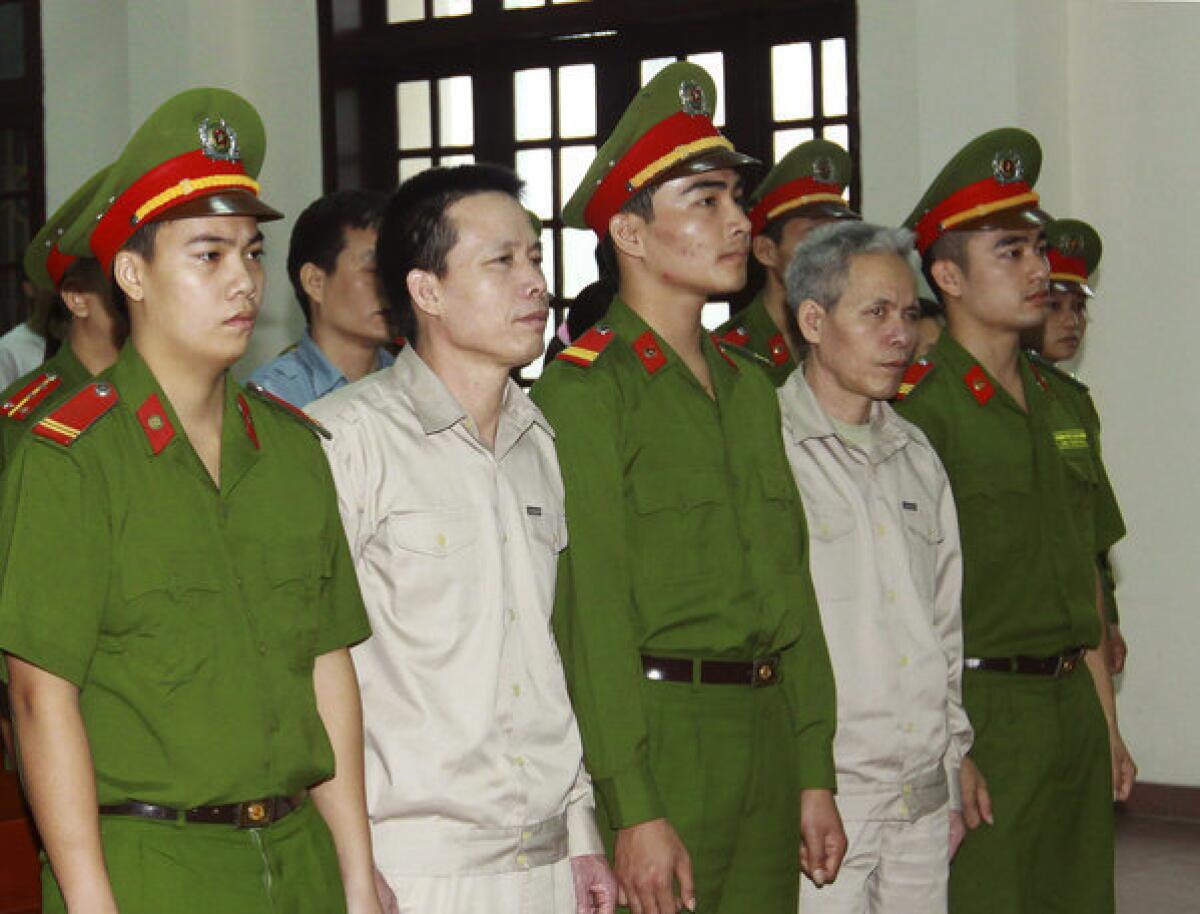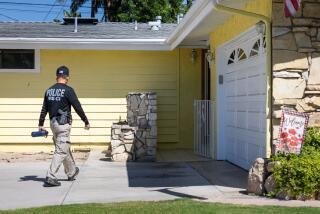Vietnam jails farmer who fought eviction -- and one of his foes

When the government came for his land, Doan Van Vuon fought back -- first with the law, then with a shotgun.
The fish farmer used rifles and explosives to battle police and soldiers seizing his converted swampland, injuring several officers in the clash. His resistance made him a hero to dispossessed peasants fed up with losing property in Vietnam, where the government can confiscate farms and give little in return. Street protests erupted in Hanoi and Ho Chi Minh City over his case. Bloggers championed his cause.
Now, more than a year later, Vuon is behind bars. And so is one of his foes.
Last week, the farmer and his brother were sentenced to five years in prison, to the dismay of local bloggers and activists who complained that the trial was riddled with irregularities.
On Wednesday, however, one of the officials who led the charge against Vuon was also jailed, sentenced to spend 2 1/2 years in prison for “damaging property of citizens,” the official Vietnam News Agency reported. Nguyen Van Khanh and four other former officials must also pay damages, according to the news agency.
The punishment “was really to appease the anger of the peasants.... It’s a case that really hit the hearts of a lot of Vietnamese people,” said Penelope Faulkner, vice president of the Vietnam Committee on Human Rights. “It’s a symbol of something that’s happening on a very large scale.”
Vietnam manages land and leases it to farmers, leaving many anxious about what happens when their leases run out. Nearly 3 out of 4 complaints filed against the Vietnamese government are tied to land disputes, according to the Center for Strategic and International Studies. Government officials can also seize land for economic development, a power that activists say is abused by local officials.
“This is a tinderbox ready to be set on fire,” said Carl Thayer, professor emeritus at the Australian Defense Force Academy. Many leases will soon run out, he said, and although the regime resists the idea of private property, people who have worked their land for decades expect their leases to continue. In light of that, “this case is a microcosm for what could happen across the country,” Thayer said.
Prime Minister Nguyen Tan Dung has said that battles over land threaten to become a “seed of sociopolitical instability” if left unaddressed, according to Thanh Nien News. Last year, Dung instigated an investigation into the seizure Vuon’s land and concluded it was illegal.
Government officials “have been quick to respond to these types of incidents when popular sentiment appears to be on the side of the victim,” said Edmund Malesky, associate professor of political science at Duke University. This farmer became popular “because the issue he faced was far from rare.”
However, Faulkner, of the rights committee, was skeptical that Wednesday’s verdict against the officials meant the state was seriously tackling land grabbing as a whole. Dispossessed farmers who camp outside government buildings in protest are frequently harassed and detained, her group says. Few have gotten the government to address their demands.
In this case, however, “there was so much protest that they had to respond,” Faulkner said.
ALSO:
Syrian Islamist group acknowledges ties to Al Qaeda
Intrigue swirls as Iran prepares to choose next president
Costa Concordia firm fined $1.3 million for shipwreck off Italy
More to Read
Sign up for Essential California
The most important California stories and recommendations in your inbox every morning.
You may occasionally receive promotional content from the Los Angeles Times.









